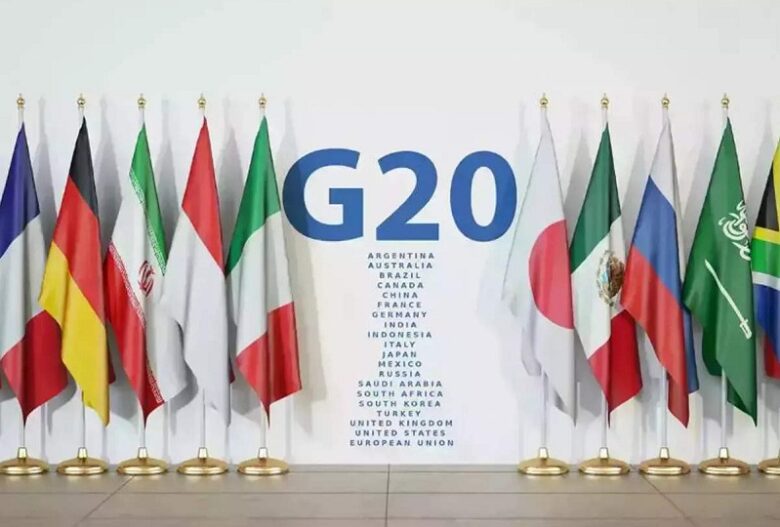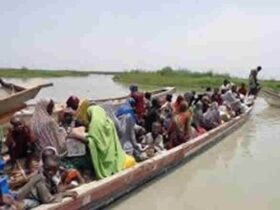Nigeria’s exclusion from the G20 and BRICS is attributed to its weakening economy, inadequate political leadership, dependency on imports, market instability, and unpredictable forex exchange rates.
These factors, as highlighted by former Deputy Permanent Representative to the United Nations Usman Sarki, former Ambassador Lawrence Obisakin, and ex-Senior UN Advisor Fred Eno on the socio-political program “Inside Sources with Laolu Akande” on Channels Television, have prevented Nigeria from meeting the economic criteria necessary for membership in these influential global groups.
Recall in November 2023, the Nigerian government announced its readiness to become a member of the BRICS group of nations within the next two years as part of a new foreign policy push to have its voice heard in important global organisations.
The West African nation will join every group that is open as long as the intentions are good, well-meaning and clearly defined, Minister of Foreign Affairs Yusuf Tuggar said in an interview.
“Nigeria has come of age to decide for itself who her partners should be and where they should be, being multiple aligned is in our best interest,” Tuggar said.
However, speaking with the Inside Sources, Sarki emphasised that membership in such blocs requires meeting stringent economic and organisational standards, which Nigeria has failed to achieve. He stressed the importance of economic stability, investor confidence, and job creation as crucial signals for international acceptance.
He said, “There are certain criteria that make those countries look at candidates. One of those is have we met all standards in terms of the organisation of our economy, in terms of the management of our economy, in terms of the projections and certainty of the way we organise ourselves?
“On all indices, on all factors, we seem to have failed in meeting those benchmarks. So, it is difficult to invite you into an exclusive clan when you do not meet the standards that have been set. And these countries will not lower their standards because of you, they will expect you to up your game to meet the standards and admit you.”
Obisakin agreed, adding that membership isn’t merely about population size or geographical spread but hinges on common interests and economic strength. He highlighted Nigeria’s challenges with security, political stability, and economic management as deterring factors for international cooperation.
He said, “There are causes and effects and correlational factors. Why did Nigeria not get invited? As regards BRICS+, I have the quotation of our Vice President (Kashim Shettima) saying Nigeria did not apply. But we are diplomats. When we talk about liberal theories of getting people to work together, it’s because there are common interests.
“When people organise meetings and conferences, they have objectives and they will select those who are relevant to them.”
He said “when a nation is strong” economically, people would want to identify with it.
“When you talk about the strength of a nation, it’s not just demography, population could be a disaster if not a liability, we are talking of the Nigerian population being well-trained and equipped. A country that is unable to feed itself is unstable,” he added.
He noted political stability and security as other factors considered by developmental partners.
“We are talking about G20, the world’s largest and most advanced economies, will they invite us? Politically we are not stable, each time we have an election, it’s like going to war. Economically, the naira is down. What are we exporting? We are importing. Nobody leaves his currency and lets it float. We have seen where it is floating now. We must manage our currency and coordinate our economy.”
Eno echoed similar sentiments, noting Nigeria’s potential based on its population and economy but lamenting institutional challenges and the need for better governance and policy-making frameworks.
The former diplomats collectively urged the Nigerian government to prioritise addressing internal economic and security challenges, advocating for sustainable solutions to forex volatility, inflation, and
food security to enhance the country’s international standing and attractiveness for global economic partnerships.
Formed in 1999, the G20 gathers the most industrialized member states regularly to coordinate international policies on trade, health, climate, and other global issues.
The G20’s members include Argentina, Australia, Brazil, Canada, China, France, Germany, India, Indonesia, Italy, Japan, Mexico, Russia, Saudi Arabia, South Africa, South Korea, Turkey, the United Kingdom, the United States, and Spain. Additionally, the European Union is a member, while the African Union was admitted in 2023.
Similarly, BRICS, comprising Brazil, Russia, India, China, and South Africa, was established in 2006 as a bloc uniting the world’s major developing economies to counterbalance the political and economic dominance of North America and Western Europe.
In January, the bloc, now known as BRICS+, expanded by admitting four new members: Egypt, Ethiopia, Iran, and the United Arab Emirates. BRICS+ collectively represents approximately 37% of the world’s.
YOU MAY ALSO READ: Biden calms concerns about debate, says he’s best qualified to win election









Got a Question?
Find us on Socials or Contact us and we’ll get back to you as soon as possible.